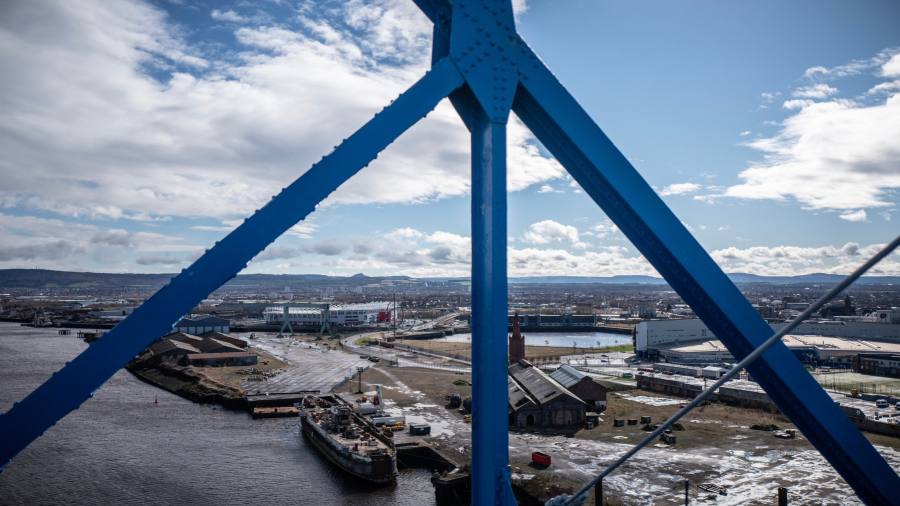
A pair of battery materials start-ups have selected Teesside to locate key parts of the electric vehicle supply chain at a time of uncertainty over the industry’s future in the UK.
Trafigura-backed Green Lithium has selected Teesport, the UK’s fifth largest port, for its £600mn lithium refinery, while Altilium Metals will also build a recycling facility in the region.
The projects are a boost for the north-east but come as the UK’s aspirations to become an EV manufacturing powerhouse are in turmoil after the near-collapse of battery start-up Britishvolt last week. Its planned £3.8bn gigafactory is one hour’s drive north in Blyth.
The new occupants are also a fillip for Teesport owner PD Ports, recently at the centre of a takeover attempt by local mayor Ben Houchen which sparked a legal battle with investment giant Brookfield Asset Management.
In a region with high unemployment, Green Lithium’s project is expected to create 250 permanent jobs and 1,000 during construction, while the recycling plant will hire between 100 and 200 people. Middlesbrough currently has the ninth highest unemployment rate in Britain, according to the Office for National Statistics.
Lithium is produced in two main ways: hard rock is dug up from mainly Australia and refined in China or brines rich in the dissolved mineral are slowly evaporated in Chile and Argentina. Almost 90 per cent of refining capacity for hard rock is based in China, giving the country significant leverage in the event of geopolitical turmoil or severe lithium shortages.
“We need China more than China needs us,” said Sean Sargent, chief executive of Green Lithium. “Only 35 per cent of Chinese production goes into their [EV] production but by the time we go into production they could divert it all into their own EV industry.”
With rising concerns over the Britishvolt project, Sargent expects most of Green Lithium’s output to go to Europe when it begins operations in 2025 but increasingly stay in the UK later into the decade.
“The gigafactory delays are not ideal for these projects,” said Adam Panayi, managing director of Rho Motion, a battery consultancy. “But over a long term horizon, it’s likely that a battery manufacturing factory will be built there and long-term prospects for the businesses are still strong.”
Claire Blanchelande, head of lithium at Trafigura, the commodity trading group that will source the refinery’s feedstock material, said lithium demand in the EU and the UK will increase more than eightfold to 600,000 tonnes by 2030. Green Lithium aims to produce 50,000 tonnes of lithium chemicals per year.
Lithium prices have risen ninefold since the start of 2021 to $74,500 per tonne of lithium hydroxide, according to Benchmark Mineral Intelligence. The surge in prices has stalled the decades-long decline in lithium-ion battery prices and threatens to derail the speed of the shift to electric vehicles.
Lithium refining and recycling of lithium-ion batteries is set to be fiercely competitive with a long road of fundraising ahead for Green Lithium. Tees Valley Lithium is planning a similar processing plant in the same region, while many others are planning projects in the EU. Commodity trader Glencore, one of Britishvolt’s key backers, plans to turn its lead refinery near London into a battery recycling facility.
The commodity is new to PD Ports, one of the area’s biggest landowners, and the Strategic Harbour Authority, although the principle is not. Green Lithium’s arrival sits within an existing wider strategy that seeks third party investment, specifically designed to drive additional traffic on to the River Tees.
With the US providing billions of dollars of grants to battery metal companies in recent months, government subsidies have become a key sticking point. Britishvolt believes its pledged £100mn grant has not been delivered quickly enough, while Green Lithium plans to apply for support for construction.
“If we want regional supply chains in the main electric vehicle markets, refining capacity needs to be built outside of China and this requires support from governments in the UK, US and Europe,” said Blanchelande.